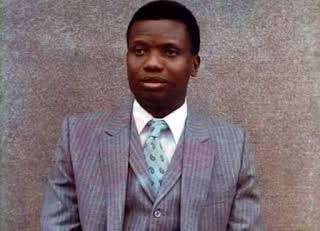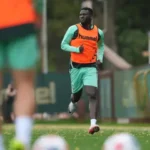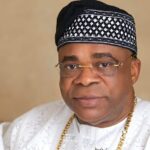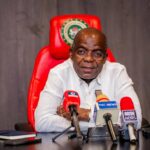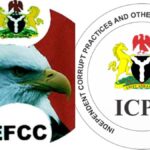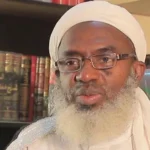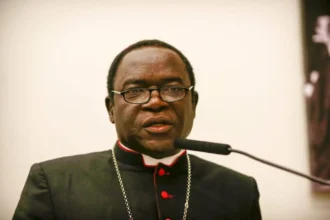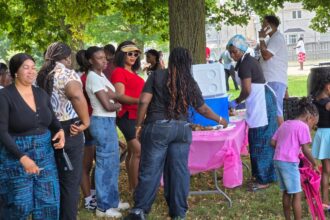Night in the mid-1980s along the Lagos–Ibadan Expressway was the kind of night that swallowed hope. Darkness pressed against the thickets, broken only by the headlights of lorries rattling past, their horns slicing through the quiet like a warning. Few dared to slow down.
- The Scholar Who Heard a Different Call
- Lagos Overflows: Why a Camp Was Needed
- A City of Mosquito Nets and Faith
- When Millions Came
- From Camp to City
- Global Footprints: From Lagos to the World
- A Metaphorical Transformation
- Controversy, Critique, and Complexity
- Legacy in Motion
- Conclusion — The City That Prayer Built
The stretch of road near Mowe was feared for its robbers—bandits who melted into the trees by day and preyed by night. Even worse, locals whispered of snakes that slithered through the swampy undergrowth, and of spirits that haunted the silent bush.
Yet one man stood, in December 1985, staring at that jungle with a conviction that defied logic. He was not a property developer, nor a tycoon seeking land speculation.
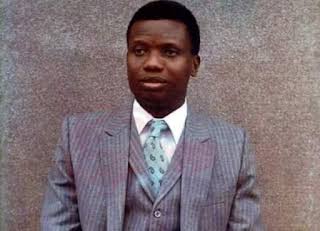
He was a preacher—formerly a university lecturer, a man who taught differential equations at the University of Lagos before destiny tugged him from academia. His name was Enoch Adejare Adeboye.
Where others saw a cursed forest, he saw a prophecy.
That night, he told his family they were moving—into the wilderness, with no electricity, no running water, no walls but bamboo and faith. They brought their few belongings and pitched their lives into the thick of mosquitoes, snakes, and silence. It was madness by worldly measures. Yet Adeboye insisted that the voice of God had chosen this forsaken land for a city not yet born—a city that would draw the nations.
What began as a prayer camp of huts and kerosene lamps would, within decades, become Redemption City—a vast, self-sustaining spiritual metropolis of electricity grids, banks, schools, estates, and worship arenas that seat millions.
This is the story of how a faith experiment in the jungle transformed into a global spiritual megacity.
The Scholar Who Heard a Different Call
Before the world called him “Daddy G.O.,” Enoch Adeboye was a man of numbers. Born in 1942 in Ifewara, Osun State, into poverty so acute that shoes were a luxury, he clawed his way to education against all odds. His brilliance in mathematics earned him a degree from the University of Ife, a master’s at the University of Lagos, and eventually a Ph.D. in applied mathematics from the University of Lagos by 1975.
He was destined for a quiet life of academia. He lectured. He wrote papers. He dreamed of becoming a Vice-Chancellor. Then came his turning point: in 1973, seeking divine help for family struggles, he walked into a small church—the Redeemed Christian Church of God (RCCG), then led by the austere Pa Josiah Akindayomi. The encounter broke him. He surrendered his life to Christ and, in time, became Akindayomi’s interpreter and protégé.
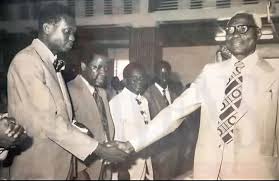
By 1981, Akindayomi’s sealed prophecy naming Adeboye as his successor was revealed after the founder’s death. Suddenly, the shy mathematician became General Overseer of a struggling church with 39 parishes, fewer than 1,000 members, and little national recognition.
The academic was now a shepherd. His challenge? To carry a small Yoruba-rooted congregation into the 21st century—and beyond Nigeria’s shores.
Lagos Overflows: Why a Camp Was Needed
By the early 1980s, Lagos was a city bursting at its seams. Population had soared past 5 million, traffic choked the streets, and urban land was costly. Churches struggled to find space for revival meetings. RCCG’s growing “Holy Ghost Services” quickly outgrew its Surulere headquarters. Crowds spilled onto streets; neighbors complained.
Adeboye faced a dilemma: how do you gather a movement too big for Lagos yet too fragile for permanent cathedrals? He began praying for land.
That prayer led to a remarkable twist. He first approached land near Iju but was priced out. Adeboye, bound by his conviction never to borrow, walked away. Soon after, a church member traveling toward Ibadan stumbled on a swampy expanse for sale. The price was modest, the owner flexible. When Adeboye saw it, he was warned of its dangers: snakes, robbers, spirits. He smiled. This is it.
On October 1, 1985, the Adeboye family moved in—no electricity, no tarred road, no fence. The jungle itself was now Redemption Camp.
A City of Mosquito Nets and Faith
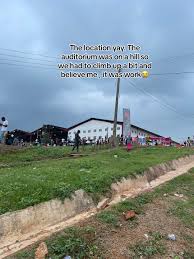
The first homes at Redemption Camp were little more than sheds—timber frames covered with mats, mosquito nets for windows. Worshippers slept on mats laid directly on the floor. At night, sounds of slithering sent shivers down spines; by day, workers cleared bush with cutlasses while chanting prayers.
Adeboye himself mixed cement and carried bricks. He had no money to hire contractors. Some mornings he couldn’t feed the carpenters, until strangers knocked with gifts of rice or cash, saying, “God sent me.”
They built dormitories like chicken pens, kitchens with firewood, and open-air prayer grounds. Every detail was testimony. If electricity failed, kerosene lamps lit the night. If snakes appeared, prayers drove them out.
Slowly, word spread: a camp was rising out of wilderness, fueled not by loans but by faith.
When Millions Came
The breakthrough came in December 1998, when Adeboye announced a Holy Ghost Festival at Lekki Beach. That night, Lagos witnessed a sight unlike anything before: over 7 million worshippers gathered, filling the coast with candles and cries of prayer. Guinness World Records took note—it was one of the largest human gatherings in history.
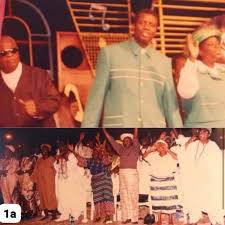
The next year, the crowd swelled to 12 million. No Nigerian stadium could contain such numbers. The Redemption Camp became the permanent ground for these services, hosting millions every first Friday of the month.
From around Nigeria and across Africa, pilgrims streamed in—traders, bankers, students, governors. Redemption Camp became not just a church facility but a national pilgrimage site, rivaling Mecca in its magnetic pull.
From Camp to City
By the 2000s, Redemption Camp was unrecognizable from its mosquito-net days. Adeboye began envisioning not just a camp, but a self-sustaining city.
Housing: Residential estates were built for pastors, members, and visitors. Mortgage schemes allowed believers to own homes inside the city.
Water: The city drilled massive boreholes, supplying over 6 million liters daily.
Power: A 25MW power plant with gas turbines lit the entire city independently of Nigeria’s fragile national grid.
Health: Clinics and hospitals provided care for thousands.
Education: Schools sprouted, from nurseries to Redeemer’s University, later moved to Ede, Osun State.
Banking & Commerce: Banks, supermarkets, restaurants, and offices emerged. Members built businesses that served both residents and pilgrims.
By 2021, the camp had officially become Redemption City—a metropolis of more than 2,500 structures. What began as a jungle now rivaled many Nigerian towns in size and infrastructure.
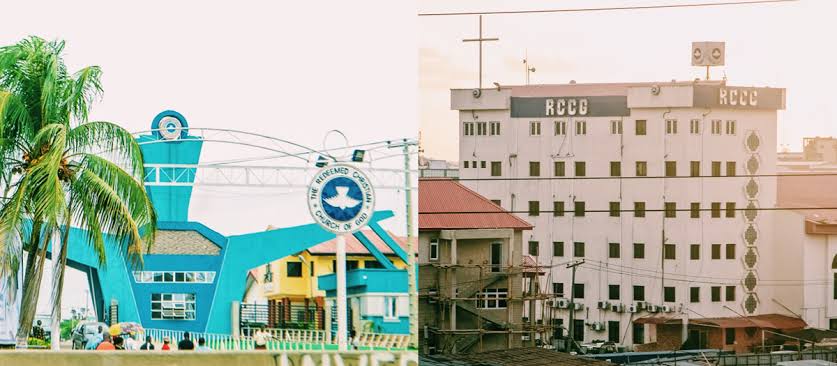
Global Footprints: From Lagos to the World
Adeboye’s vision extended far beyond Mowe. He declared that RCCG would plant a church “within five minutes’ walk in developing cities, and five minutes’ drive in developed ones.”
That audacious vision turned into a missionary movement. Today, RCCG has a presence in 190+ countries, with over 40,000 parishes worldwide—from London to Dallas, Dubai to Johannesburg. In Nigeria alone, churches dot every major street.
The Redemption Camp itself became a global brand, attracting presidents, business moguls, and foreign worshippers. During Congresses, traffic on the Lagos–Ibadan Expressway slows to a crawl, as hundreds of thousands pour into the city-within-a-city.
A Metaphorical Transformation
The story of Redemption City mirrors Nigeria’s own struggles and hopes. A land written off as dangerous becomes a hub of light. A man once locked in numbers becomes a shepherd of millions.
It is, in many ways, the metaphor of faith turning wilderness into wonder. Adeboye did not simply build walls; he built a vision where prayer, commerce, education, and infrastructure intersect. The city itself is a sermon: that God can transform not just souls, but spaces.
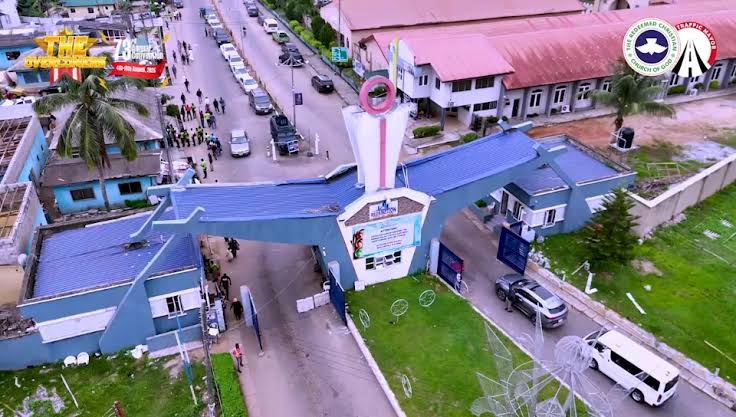
Controversy, Critique, and Complexity
Like all grand projects, Redemption City has not been without criticism. Some question the environmental impact of such a sprawling settlement. Others debate the line between church and state, especially given its sheer size and influence. Still, for millions of Nigerians, it stands as a haven of order and possibility in a country often marked by dysfunction.
Where government grids fail, Redemption City’s lights stay on. Where public hospitals falter, its clinics serve. Where infrastructure is absent, the church has built.
Whether one sees it as a miracle or as religious capitalism, its scale is undeniable.
Legacy in Motion
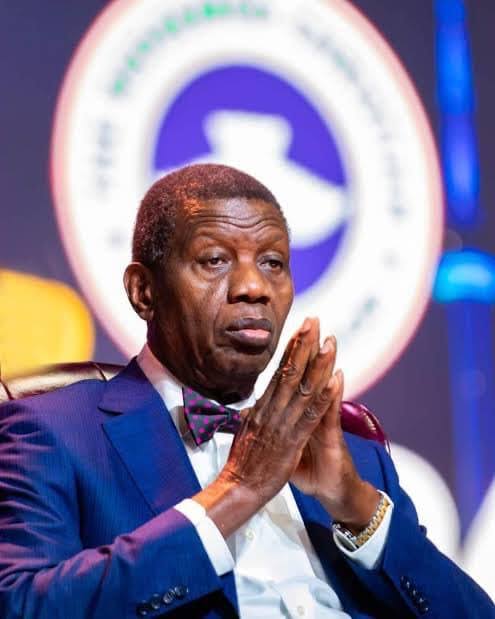
Today, at over 80 years old, Adeboye still walks the grounds, soft-spoken, Bible in hand. He has resisted retirement, choosing instead to mentor a new generation of pastors while steering global expansion.
His legacy is etched not only in sermons but in asphalt roads, power cables, housing estates, and satellite churches across the world. From the snake-infested jungle of 1985 to the glittering Redemption City of today, the arc of his ministry is a parable of transformation.
Conclusion — The City That Prayer Built
If you drive the Lagos–Ibadan Expressway today and turn off at Mowe, you no longer see a forbidding bush. You see streetlights, gates, estates, and towers. What was once feared is now revered.
The Redemption City is not just a church headquarters. It is a city of faith—a living testimony that belief can redraw geography, that prayer can lay foundations as solid as concrete, that a man who once counted numbers can now count nations.
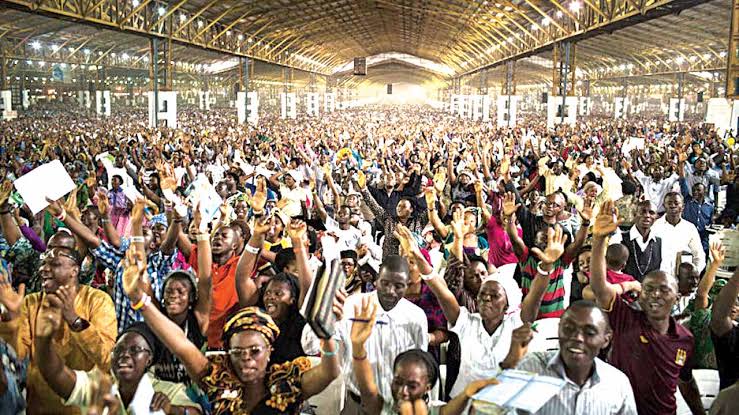
Enoch Adeboye did not just transform a jungle into a city. He transformed the very idea of what faith can build.

